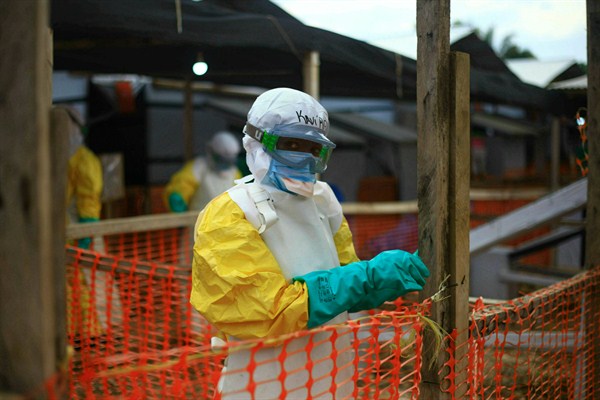GULU and KAMPALA, Uganda—Earlier this month, a family with a five-year-old boy left the Democratic Republic of the Congo and entered Uganda. They skirted the official crossing point, using an unmarked footpath. The family had attended the burial of a relative in Congo, who had died of Ebola.
Since the Ebola epidemic in Congo began in August 2018, more than 1,500 people have perished, making it the largest Ebola outbreak ever in Congo and the second-largest on record. The virus has been notoriously difficult to treat and contain, due to Congo’s instability and its porous borders. Unrest in Congo has sent more than 37,000 refugees streaming into Uganda since the beginning of last year, while other Congolese nationals regularly cross the border to trade.
Given these conditions, Uganda’s Ministry of Health sprang into action. It coordinated a national task force to prepare for Ebola’s inevitable spread, uniting national and international partners, and investing some $18 million in various protection measures, with financial support from major international donors.

